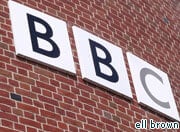A BBC pledge to ensure eight per cent of its staff are LGBT has been described as “bizarre” by a commentator, but welcomed by the Government.
In its Diversity and Inclusion Strategy 2016-20, the BBC states that it wants around one in thirteen of its staff to be lesbian, gay, bisexual or transsexual by the end of the decade.
It is also seeking to have “8% LGBT on screen portrayal including some lead roles by 2020”.
Society
Writing in The Spectator magazine, Ross Clark said the target would leave the BBC dramatically over representing LGBT people.
The Government, in its White Paper on the future of the BBC, welcomed the target alongside the Corporation’s other equality and diversity aims.
It stated: “Our television screens and radio waves still do not adequately reflect the society we live in.”
Transsexual
However, Clark highlighted a previous statement from the Office for National Statistics that showed just 1.5 per cent of the UK population is LGB.
With around 19,000 people working full time at the BBC, that would equate to 285 staff.
The number of people who have had a gender recognition certificate since the 2004 Act to change their legal birth sex is under 4,000 – around 0.006 per cent of the UK population.
Best people
Clark questioned the rationale for the over representation of LGBT people, saying he would rather “trust the BBC’s managers to employ the best people for the job” than being bound to equality quotas.
In a 2012 BBC report, LGB organisations and representatives said children should be introduced to homosexuality from an early age on TV.
The report said these groups wanted “incidental portrayal” of lesbian, gay and bisexual people to be incorporated within programming aimed at children.
‘Cultural liberal bias’
Andrew Marr, the BBC’s former Political Editor, has previously said: “The BBC is not impartial or neutral. It’s a publicly-funded, urban organisation with an abnormally large number of young people, ethnic minorities and gay people.
“It has a liberal bias not so much a party-political bias. It is better expressed as a cultural liberal bias.”
ONS figures for the numbers of LGB people in the UK have shown little change in recent years. In 2010, the first year figures were recorded, they stood at 1.5 per cent. By 2015 it had risen to 1.6 per cent.

